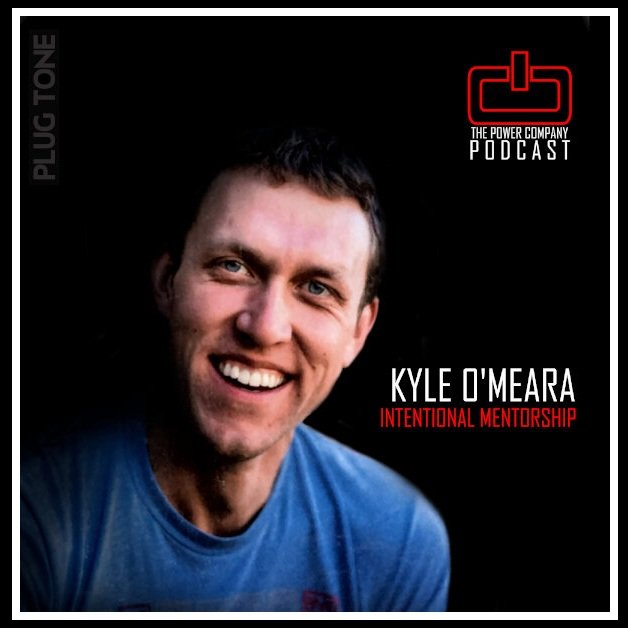A Sports Psychologist Looks at Episode 90: The Coach/Climber Dynamic

"A good coach-athlete relationship means that coaches allow themselves to not always be right..."
- Madeleine Eppensteiner | Climbing Psychology
In episode 90 of the podcast I sat down with Taylor Reed and Bella Jariel for an interesting discussion that explores how their relationship as coach and climber contributes to their success. I walked away from that conversation with increased admiration for both Bella and Taylor's willingness to be open and vulnerable to improve themselves.
Taking that idea even further, Taylor reached out to sport psychologist and climber, Madeleine Eppensteiner, and asked for her analysis of the episode and the relationship between he and Bella. You can find more from Madeleine at Climbing Psychology.
Taylor says, "It is certainly a little scary to ask someone you respect, but don’t know, to analyze the relationship between you and your athlete, but I’m glad I did. From discussing why athletes should take an active part in their own training, to finding a balance between autonomy, flexibility, authority and trust, to an excellent point about focusing on an athlete’s emphasis on their self rather than others, Madeleine’s perspective is insightful reading and eminently practical.
One of my favorite excerpts of Madeleine's analysis: "A good coach-athlete relationship means that coaches allow themselves to not always be right, give their athletes space to e.g. discover moves themselves, and also don’t see it as critique of their coaching abilities if the athlete doesn’t do something exactly the way they had said, e.g. executing a move. So much for autonomy and flexibility. From what I can tell about Taylor’s and Bella’s relationship by listening to the podcast, they seem to have a great balance of autonomy, flexibility, authority and trust. There is no “misuse of power“, both are equal in their relationship (Frester, 1995 – old but still contemporary research!)."
Taylor's highlights based on the analysis – Athlete/coach meshing: 8:25 – 10:15 | Humility: 12:20 – 14:12 | Failure at Worlds: 15:10 – 17:15 | Mutual decisions: 21:00 – 22:05 | Stress: 23:30 – 25:15 | Bella Pushing Back: 29:15 – 30:45 | Outside Climbing: 35:30 – 39:55 | Bella embracing her discomfort. 45:05 – 46:30
Lauren Abernathy, coach and owner of Good Spray Climbing, works hard to help her clients – and herself – become better climbers.
The difficulties of a task should be such that they help the learner translate the skill to performance.
You’re watching your client, student, partner, or bestie struggle. And you want to help. But how? It entirely depends on the goal.
We think we know exactly what climbing looks like. We’ve zeroed in on the details. And in this case, it really isn’t those details that matter.
Aman Anderson is opening doors to climbing with the BFL Combine.
Our good friend Lauren Abernathy talks about the challenges of being a female coach in a male-dominated industry.
Coaching kids is more than just making stronger climbers.
Taylor Fragomeni shares lessons she’s learned from routesetting and coaching as a female.
Joslynn Corredor is helping women rediscover their athletic identity.
Meet Lee Cossey: coach, gym owner, and Australia’s best all around climber.
A refreshing approach to coaching from Australia’s National Coach, Will Hammersla.
If you're a coach, this is a must listen to episode. In fact, if you're a climber who wants to learn to climb better, it's a must listen.
Today's episode is a question and answer session from the Performance Climbing Coach Seminar, recorded live in Columbia, MD.
"A good coach-athlete relationship means that coaches allow themselves to not always be right..." - Madeleine Eppensteiner | Climbing Psychology
Taylor Reed and Bella Jariel set the bar high for being a successful coach/climber team. Taylor has helped coach Bella to big success on the international stage.
Salt Lake climber and coach Steve Maisch had some of the first assessments I remember seeing online, and we go into how he's added, subtracted, and refined those.
At a time when we're seeing a whole new generation of young crushers becoming adults, the role of the parent has become more and more important.
After you've done your assessments, you've trained and met the standards, you've won or lost, or your season is over... Now What?
Lantien Chu is the coach of a high school swim team that has won 21 consecutive state titles.
I've been friends with, climbed with, and offered training advice to Yasmeen Fowler for several years.
A climber since 1994, Kris was a traddie for 12 years before he discovered the gymnastic movement inherent in sport climbing and bouldering. Through dedicated training and practice, he eventually built to ascents of 5.14 and V11.
Kris started Power Company Climbing in 2006 as a place to share training info with his friends, and still specializes in working with full time "regular" folks. He's always available for coaching sessions and training workshops.

























Kris and Alex discuss coaching vs. training, the evolution of training for climbing and the limits of human possibilty.